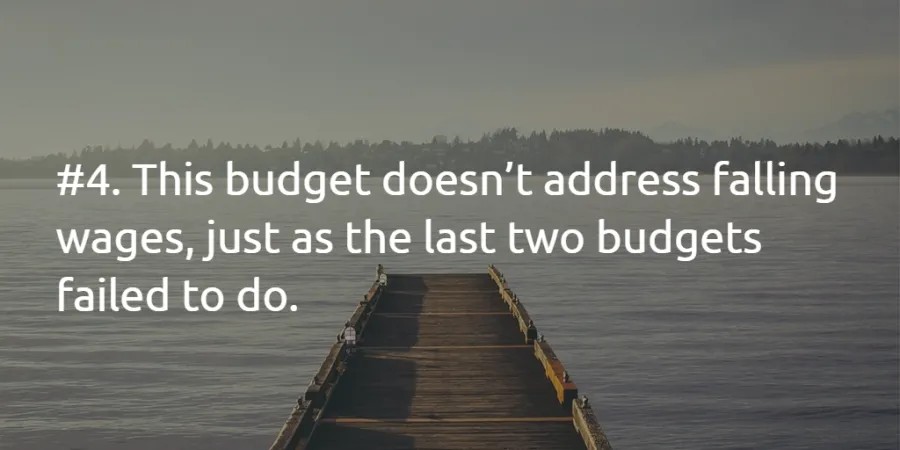Top 10 state budget missteps in 2015 | The Progressive Pulse
Jeremy Sprinkle

Will state lawmakers fix any of these problems in 2016?
The New Year will give North Carolina lawmakers a chance to right their budget wrongs from 2015, says Tazra Mitchell with the Budget & Tax Center, who lists the top 10 ways policymakers last year "chose to deliver greater benefits to the wealthiest few" rather than invest in providing opportunities for the rest of us to succeed.
- State lawmakers once again chose to cut taxes that primarily benefit the wealthy and profitable corporations over meaningful levels of reinvestment. The tax plan will reduce revenue by $1 billion annually when fully implemented, cutting off pathways to greater economic success like early childhood development, public schools, and community economic development while also failing to boost the economy or create jobs.
- State lawmakers failed to restore the state Earned Income Tax Credit (EITC), which benefited nearly 1 million families and their 1.2 million children. Yet, they chose to expand the sales tax to new services like maintenance, repair, and installation, effectively further shifting the tax load onto middle- and low-income taxpayers.
- The 2015 tax changes make our tax system more upside-down by asking even more from people who are already struggling to pay the bills. Under full implementation of the tax package, the lowest income working families will end up paying a tax increase of $7, on average, whereas millionaires are the big winners again with a tax cut of more than $1,800 on average.
- This budget doesn’t address falling wages, just as the last two budgets failed to do. In 2013 an hour’s work in NC earned around $2.50 less than the national average; now that gap has grown to almost $3.00. Allowing the state’s lowest-income families to keep more of what they earn through an EITC is a key way to build a stronger economy, along with a higher minimum wage and collective bargaining rights, but legislators failed to restore the tax credit and raise the minimum wage.
- State investment is at historic lows. State lawmakers passed a budget that keeps state spending as part of the economy below the 45-year average. That would be fine if needs have shrunk but they’ve grown. State budgets typically allow spending to grow as the population grows and the economy changes, especially after an economic downturn when revenues plummet and services are frozen or cut.
Read the rest of the top 10 here.
Source: Top 10 state budget missteps in 2015 | The Progressive Pulse
